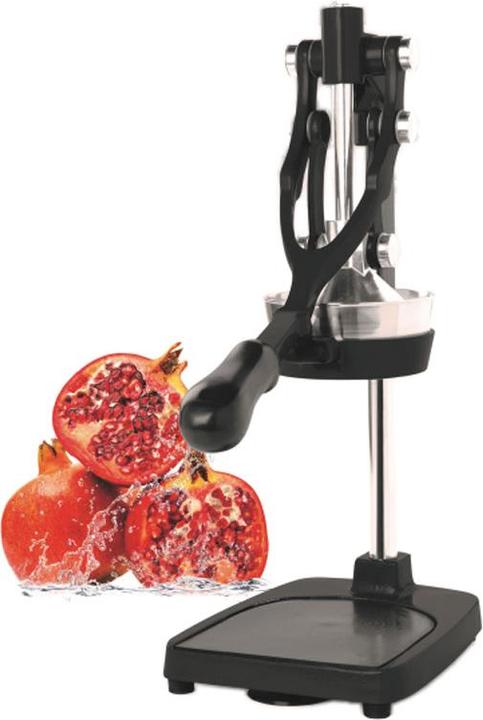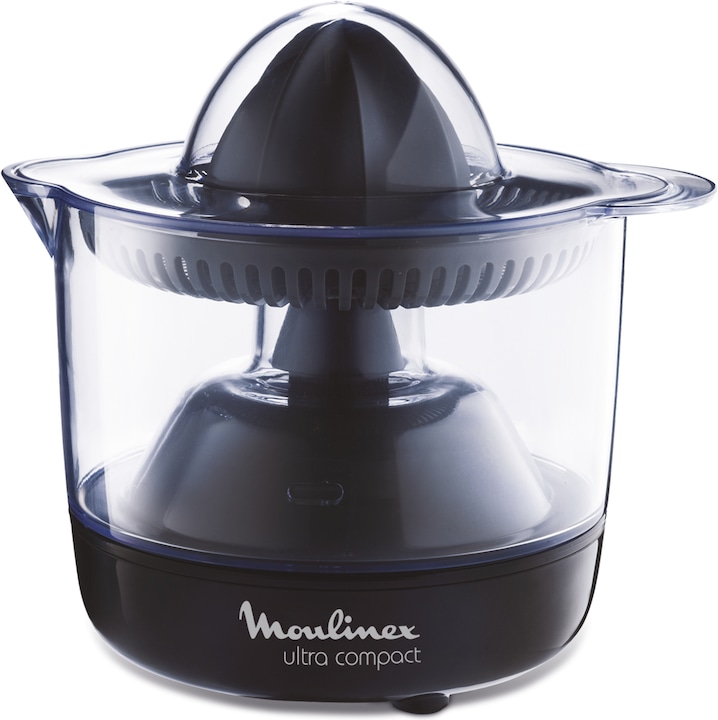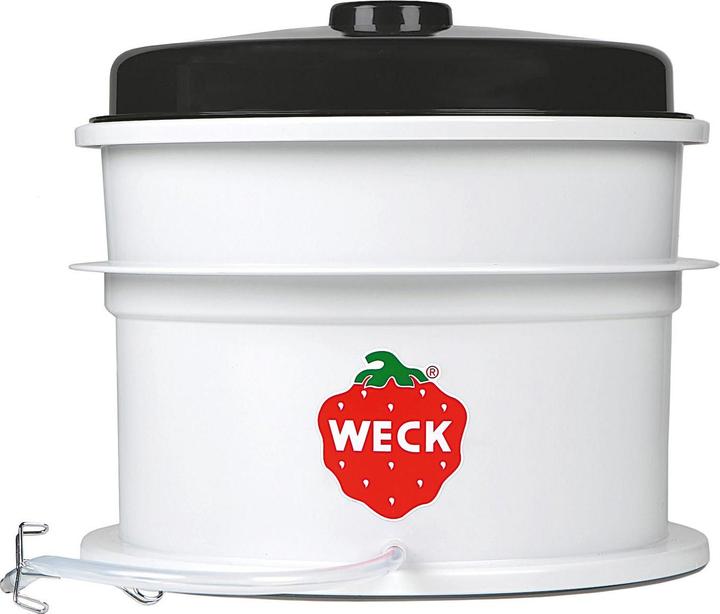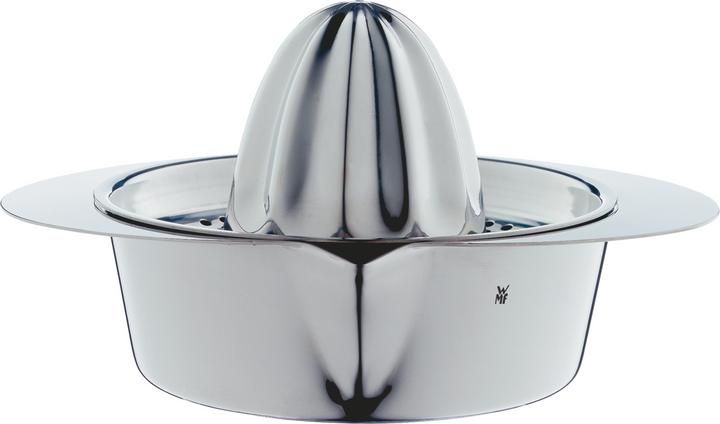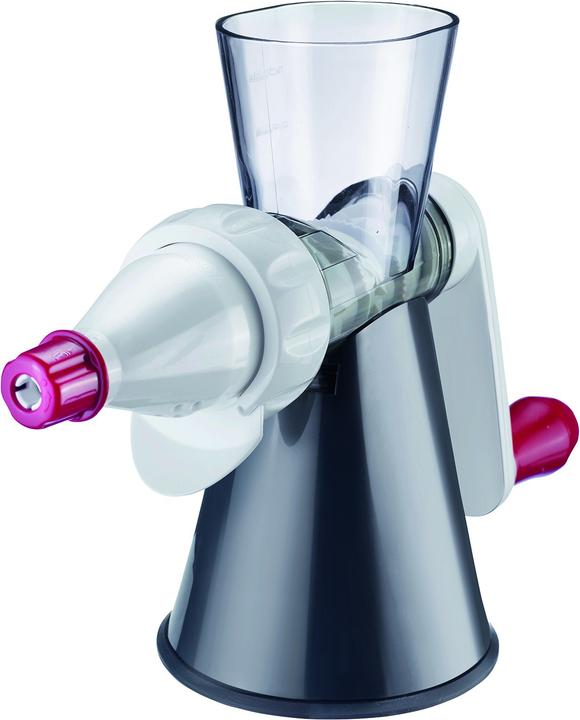
Too Many Juicers? Here's How to Choose the Right One
Discover the key factors to consider when selecting the perfect juicer for your needs.
Last updated 1 week ago. Automatically generated content.
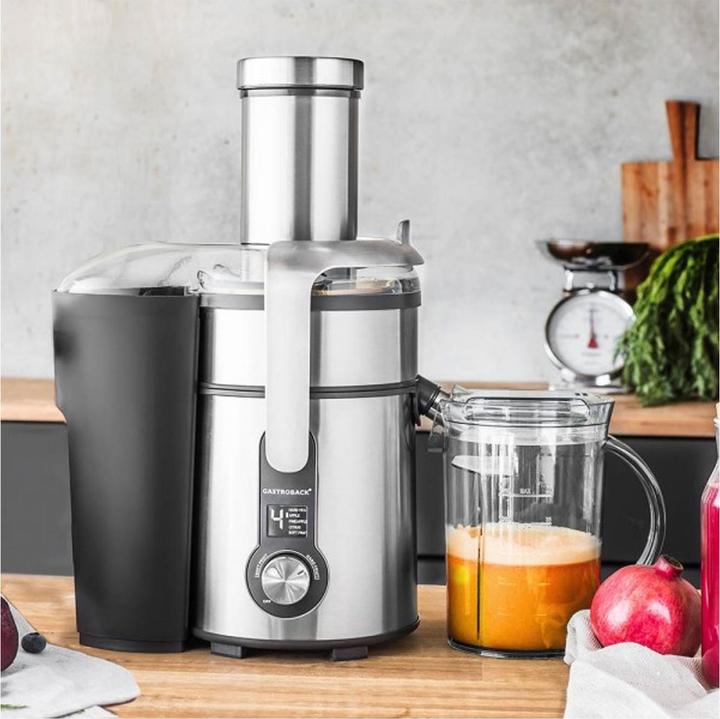

Select options and limit the number of products
Juicer type determines the method used to extract juice from fruits and vegetables, affecting efficiency, juice quality, and ease of use. Choosing the right juicer type is essential for achieving desired juice textures and maximizing nutritional benefits.
Popular options (you can select more than one)
Slow Juicer
Typical price
120,– to 460,–Operates at a slow speed to gently crush fruits and vegetables, preserving nutrients.
Great for health-conscious individuals, providing high-quality, nutrient-rich juices with less oxidation.
Bestseller
Centrifugal juicer
Typical price
61,– to 130,–Utilizes high-speed spinning to separate juice from pulp quickly.
Perfect for busy individuals who need fast juice extraction, offering convenience and efficiency.
Bestseller
Fruit press
Typical price
17,– to 120,–Uses manual force to extract juice, often from soft fruits and berries.
Ideal for those who appreciate traditional methods, providing control over juice extraction and a hands-on experience.
Bestseller
Power in juicers refers to the wattage of the motor, which determines the juicer's efficiency and ability to handle different types of produce. Higher power levels generally translate to faster juicing and better performance with hard or fibrous fruits and vegetables.
Popular options
151 - 400 W
Typical price
64,– to 290,–Provides balanced power for a variety of fruits and vegetables.
Offers efficient juicing for regular use, combining performance with energy efficiency.
Bestseller
Juice container volume refers to the capacity of the juicer's container, determining how much juice can be produced in one session. Choosing the right volume affects convenience and efficiency, especially when juicing for multiple people or larger quantities.
Popular options
Up to 0.5 l
Typical price
25,– to 100,–Suitable for small quantities, ideal for individual servings or quick juicing needs.
Compact size is perfect for limited kitchen space and easy storage.
Bestseller
0.51 - 1 l
Typical price
31,– to 130,–Offers medium capacity, accommodating small families or moderate juicing requirements.
Strikes a balance between efficiency and storage space, making it versatile for various uses.
Bestseller
The operating mode of a juicer determines whether the juicing process is powered manually or electrically, impacting convenience and efficiency. Choosing the right mode can affect the ease of use, time investment, and overall juicing experience.
Popular options (you can select more than one)
Electrical
Typical price
48,– to 200,–Powered by electricity, providing automated juicing with minimal effort.
Ideal for quick and efficient juicing, perfect for high-volume needs or those seeking convenience.
Bestseller
Manual
Typical price
18,– to 72,–Operates by hand without the need for electricity, requiring physical effort.
Suitable for those who prefer a hands-on approach or have limited access to power sources, offering control over the juicing process.
Bestseller
The brand factor plays a crucial role in juicer purchase decisions, as it often reflects reliability, innovation, and customer satisfaction. Known brands like Philips, Braun, and WMF offer diverse features that cater to different needs, from high efficiency to user-friendly designs.
Popular brands (you can select more than one)
Philips
Known for its innovative technology in kitchen appliances, offering a range of juicers with advanced features.
Provides high efficiency and durability, making it suitable for both daily use and heavy-duty juicing.
Bestseller
WMF
Known for its premium quality and stylish designs, often incorporating stainless steel.
Provides robust performance and longevity, ideal for those who value aesthetics and durability.
Bestseller
Westmark
Focuses on simple, manual juicers that emphasize ease of use and maintenance.
Great for occasional users who prefer straightforward functionality without electrical components.
Bestseller

